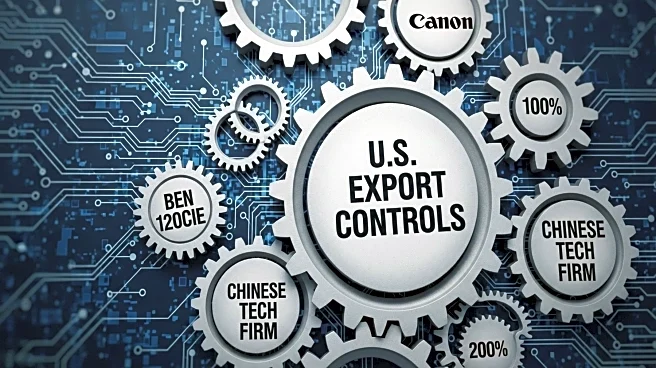What is the story about?
What's Happening?
The U.S. Department of Commerce has expanded its export control measures to include subsidiaries of companies already on the entity list, primarily affecting Chinese tech firms. This move aims to close loopholes that allowed these companies to bypass restrictions by using their subsidiaries. The new rule applies to subsidiaries with at least 50% ownership by a listed entity, impacting sectors such as chip manufacturing and AI technology. The decision has drawn criticism from China, which views it as a malicious act that undermines global supply chains. The expansion took effect immediately, with some companies receiving a 60-day exemption.
Why It's Important?
This development is significant as it intensifies the ongoing tech rivalry between the U.S. and China. By targeting subsidiaries, the U.S. aims to prevent the circumvention of export controls, which could have previously allowed restricted technologies to reach Chinese firms. This move could disrupt Chinese tech companies' operations and supply chains, potentially slowing their technological advancements. It also reflects the U.S.'s broader strategy to safeguard national security and foreign policy interests by limiting China's access to critical technologies.
What's Next?
The expansion of export controls is likely to escalate tensions between the U.S. and China, especially as both nations prepare for upcoming diplomatic engagements. China has indicated it will take necessary measures to protect its companies, which could lead to retaliatory actions. The situation may also influence global tech supply chains and prompt other countries to reassess their trade policies with China.















